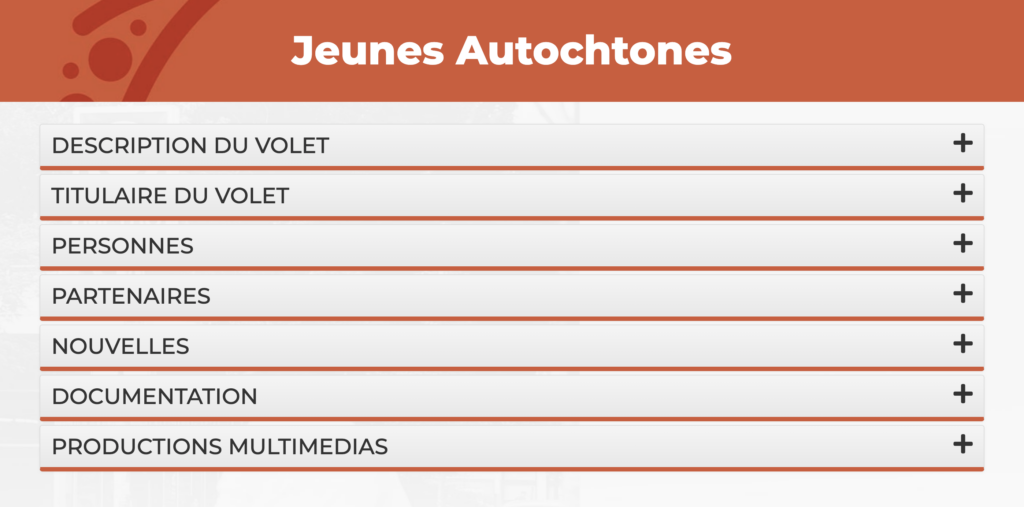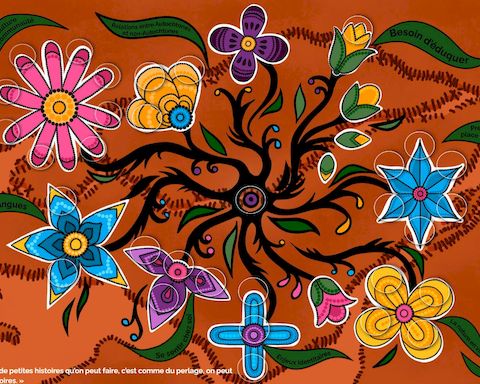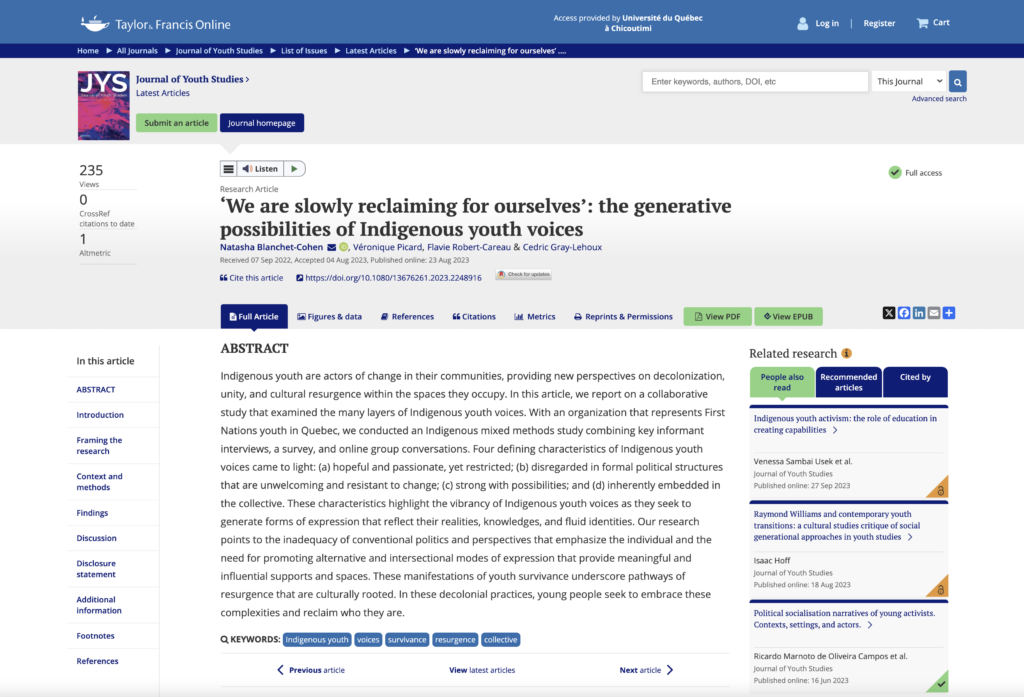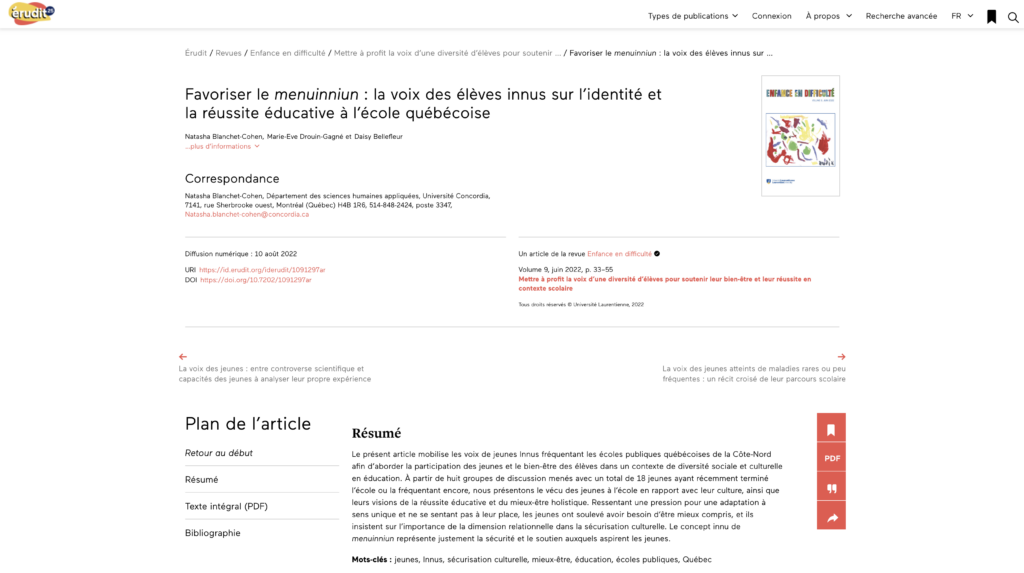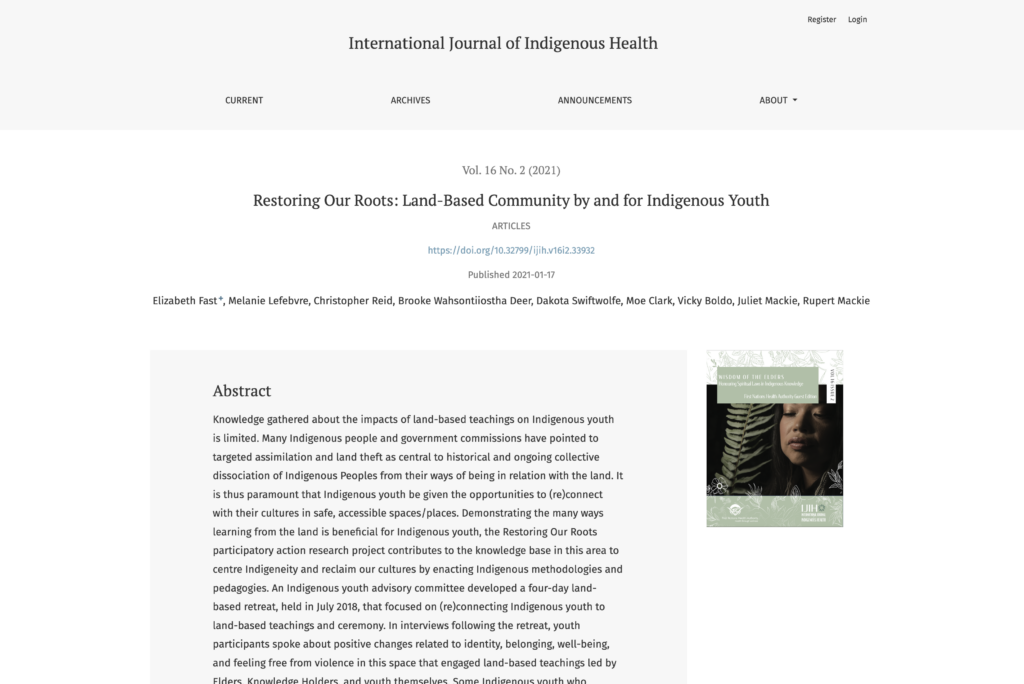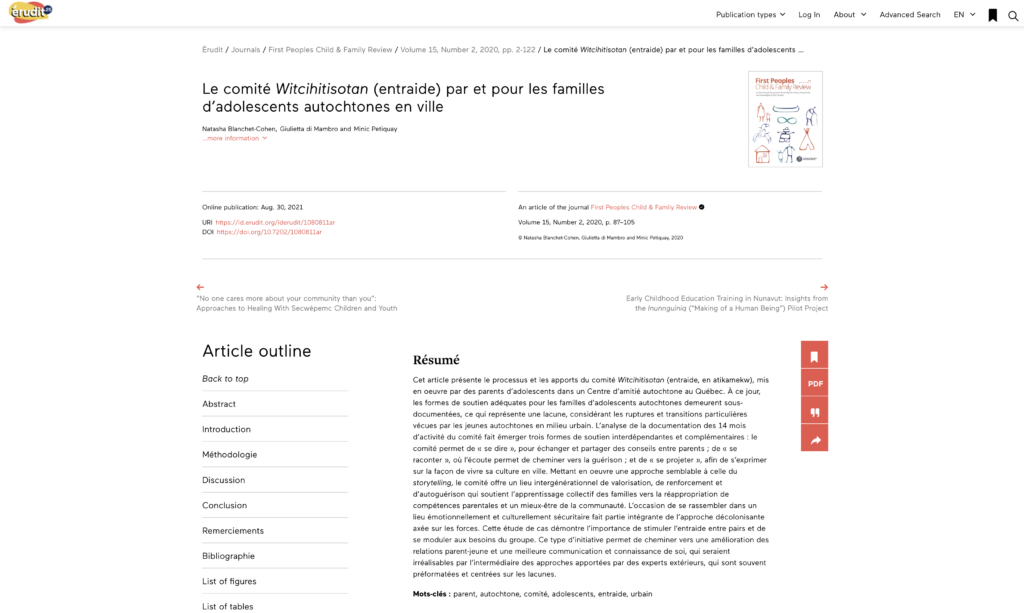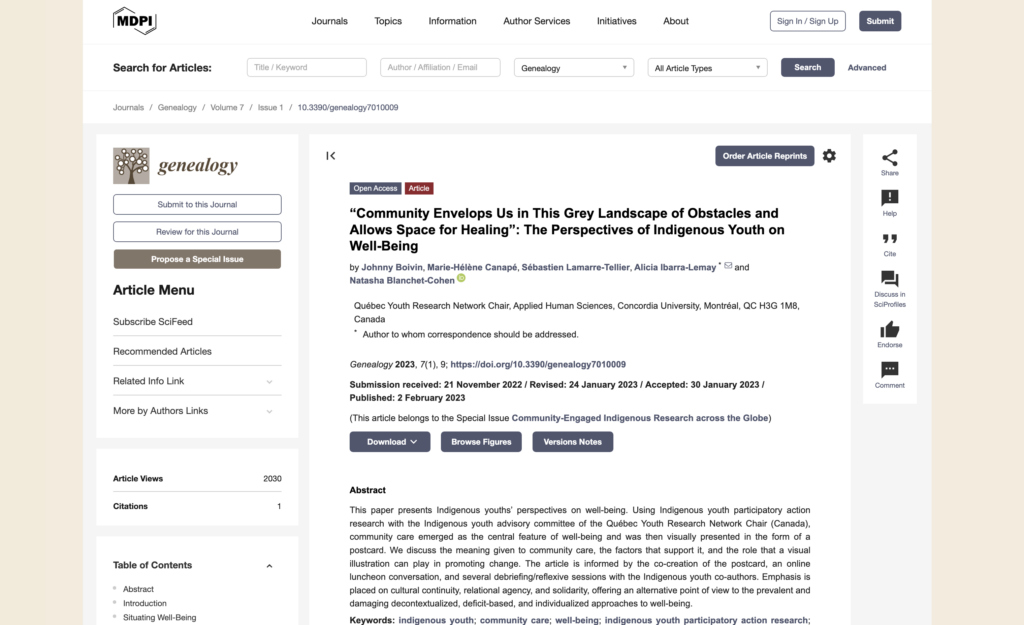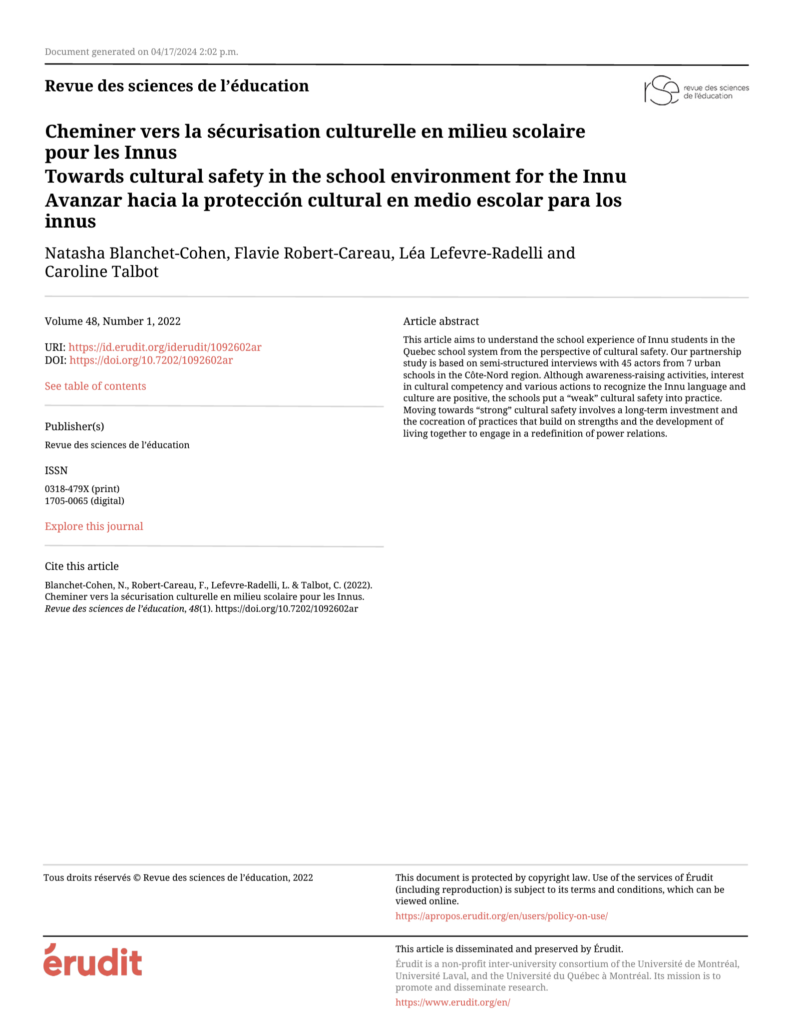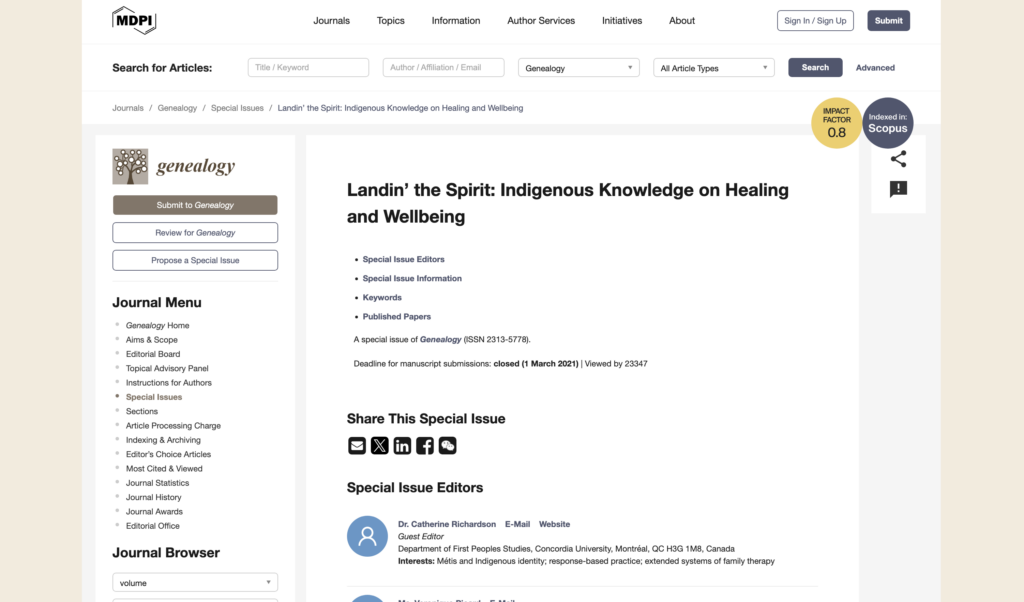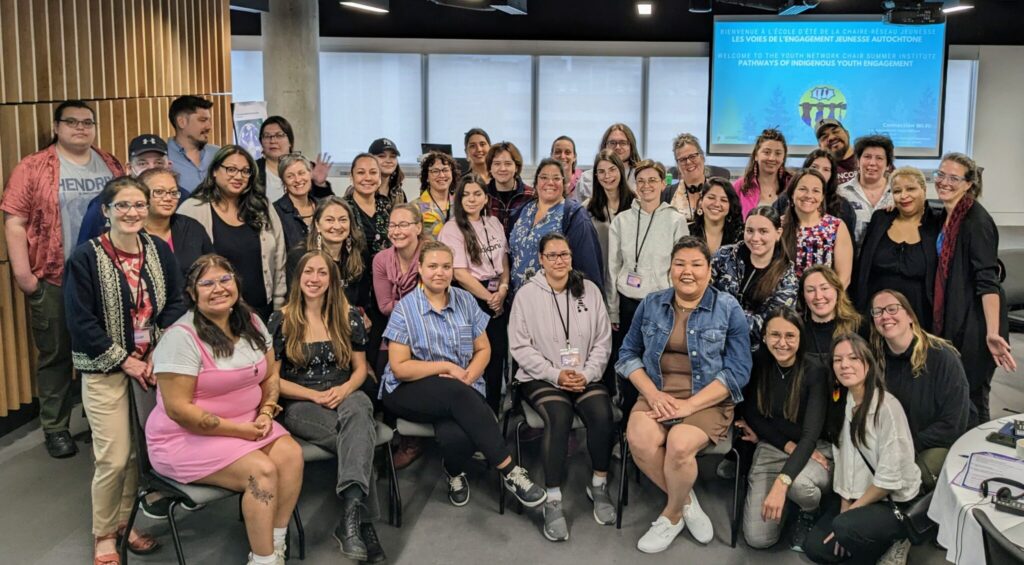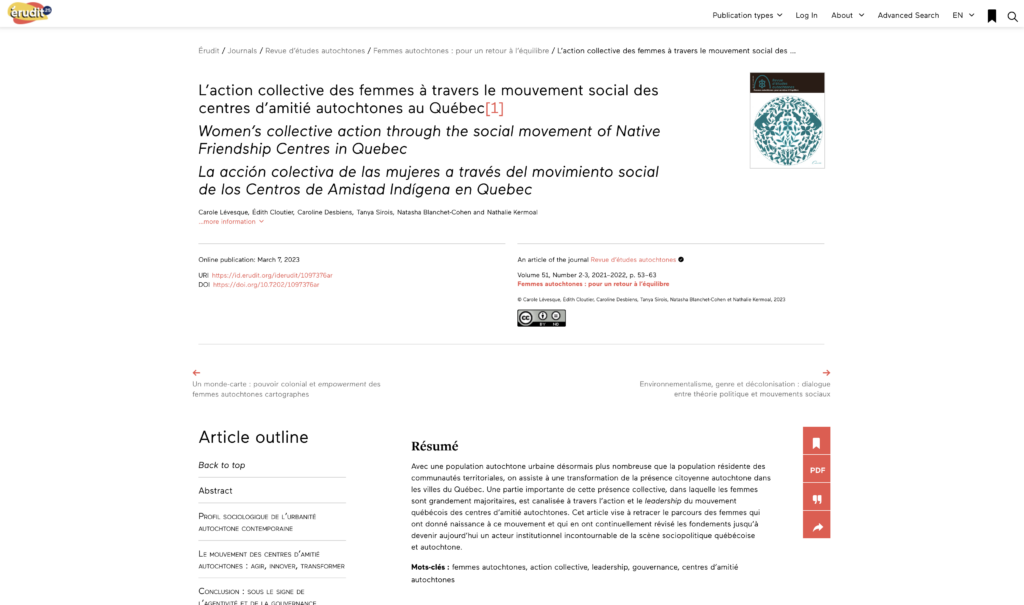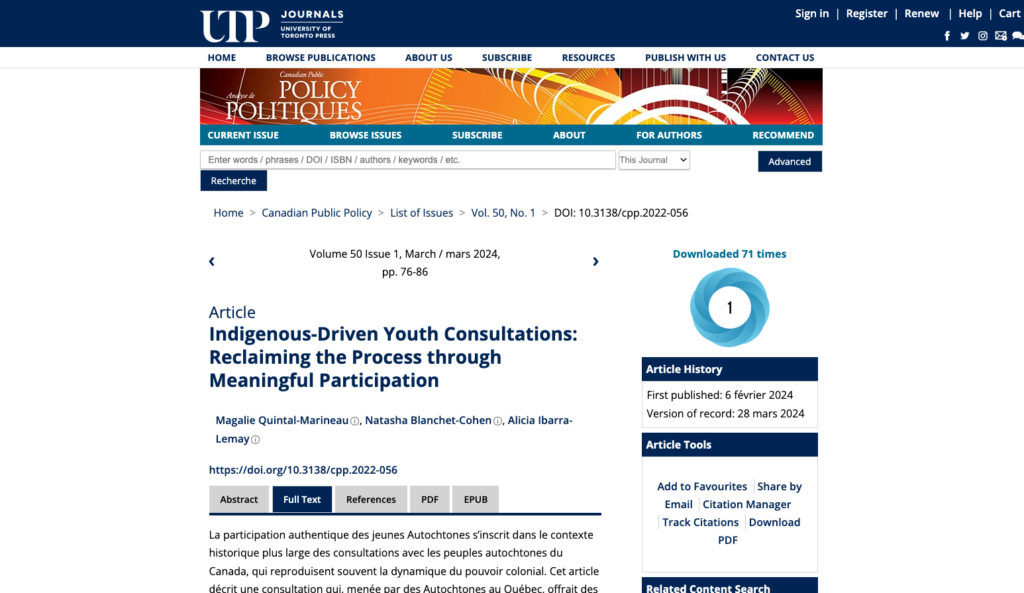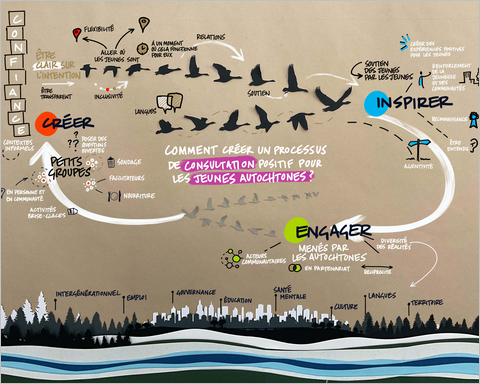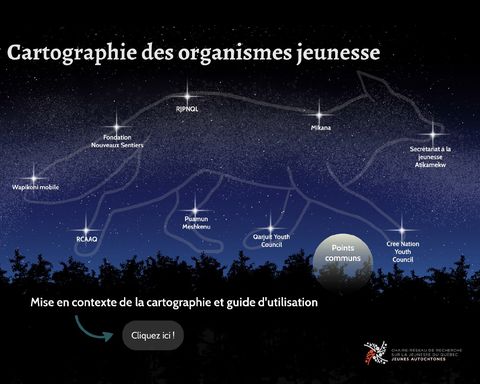Notice bibliographique
Lévesque, I.-S. et Abdel-Baki, A. (2020). Homeless youth with first-episode psychosis: A 2-year outcome study. Schizophrenia Research, 216, 460-469.
Résumé
Background : Psychosis augments the risk of homelessness, the latter is associated with increased morbidity and mortality. Young adults experiencing first-episode psychosis (FEP) are increasingly recognized as being vulnerable to homelessness. However, data on homeless in youth with FEP are sparse.
Objectives : To compare symptomatic and functional outcomes in homeless v. never homeless FEP, at admission and two years after admission to an Early Psychosis Intervention Service (EIS).
Method : From October 2005 to April 2011, 167 FEP consecutive admissions (aged 18–30 years old), were recruited in a 2-year prospective longitudinal study in an inner city EIS in Montreal, Canada. Socio-demographic characteristics, symptomatic and functional outcomes, as well as treatments and service use data were collected at admission and annually.
Result : 26% of FEP were homeless, prior or during the follow-up. Attrition rate was similar among the two groups. At baseline, the homeless group were more likely to have childhood abuse, forensic history, non-affective psychosis, negative symptoms, substance use disorder and cluster B personality.
Despite the intensive care of EIS, the similarity of illness severity at baseline and medication adherence rate, homeless FEP had poorer 2-year symptomatic and functional outcomes, although having more long-acting injectable antipsychotics (LAI) (vs oral antipsychotics), community treatment order and hospitalizations.
Conclusion : Homelessness is a serious and prevalent phenomenon among FEP youth associated with worse symptomatic and functional outcomes. More studies on interventions focusing on potentially modifiable factors (e.g. substance use disorders, social support) are warranted.
Hyperlien
Lien vers l'articlePublication du membre
Dre Amal Abdel-BakiAppartenance aux volets










